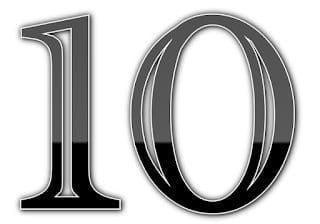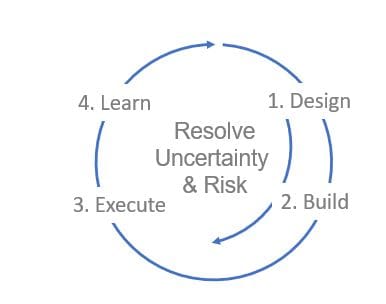
Favorite There is a bit of a philosophical divide in KM circles – those who take a top-down approach to implementation, and those who prefer bottom-up. The truth is that neither are right. Image from wikimedia commons The bottom-up view is that if you provide people with the KM tools,
Read More
 Shared by Nick Milton January 10, 2022
Shared by Nick Milton January 10, 2022

Favorite This is a blog post I repeat every 5 years or so, my summary of Top 7 success factors for implementing Knowledge Management. There are more than 7, of course (see the knowledge manager’s handbook for details), but these are some of the most fundamental recommendations. Many if not
Read More
 Shared by Nick Milton November 29, 2021
Shared by Nick Milton November 29, 2021

Favorite In 2008 David Snowden published a landmark article on 7 KM principle, mainly focusing on the supply side of knowledge management. The post below, upcycled from 2012, aims to present similar principles from the demand side. Principles by Nick Youngson CC BY-SA 3.0 Alpha Stock Images David’s 2008 post is currently (Nov
Read More
 Shared by Nick Milton November 9, 2020
Shared by Nick Milton November 9, 2020

Favorite In this article from Forbes Magazine in 2012, Steven Denning, once head of KM at the World Bank and a wise commentator on Knowledge Management topics, describes his ten principles for managing knowledge. These are as follows The amount of money that could be spent on accumulating knowledge is infinite: Knowledge is
Read More
 Shared by Nick Milton July 13, 2020
Shared by Nick Milton July 13, 2020
Favorite I blogged last week about the 5 basic principles behind successful Knowledge Management. Let’s take that one step further, into the principles behind a KM Strategy. Strategy by Kathryn Decker on Flickr When Stephanie Barnes and I wrote our book “Designing a successful KM Strategy” we included a chapter
Read More
 Shared by Nick Milton June 25, 2020
Shared by Nick Milton June 25, 2020

Favorite There is no universal solution for Knowledge Management in an Organisation, but there is a set of universal principles. A Management Framework for KM is bespoke – not off-the-peg. Each organisation must find its own solution , and must design its own Framework. There is no template, no universal
Read More
 Shared by Nick Milton June 19, 2020
Shared by Nick Milton June 19, 2020

Favorite There is no universal solution for Knowledge Management in an Organisation, but there is a set of universal principles. A Management Framework for KM is bespoke – not off-the-peg. Each organisation must find its own solution , and must design its own Framework. There is no template, no universal
Read More
 Shared by Nick Milton June 19, 2020
Shared by Nick Milton June 19, 2020

Favorite KM in product development has its own set of principles. Here they are. The Exploratory Product Development Resolution Loopby Petepetey via Wikimedia Commons Kennedy, Harmon and Minnock’s excellent book “Ready, Set , Dominate” takes a knowledge-centred view of product development, inspired by practices of Toyota Motor Company and refined
Read More
 Shared by Nick Milton March 3, 2020
Shared by Nick Milton March 3, 2020

Favorite Another set of interesting KM principles to go in our limited collection. These KM principles were presented by Michael Hill at KM Australia, and Michael (CKM and mentor for Tactical Training group, Pacific) was keen to point out that he was sharing his personal views, not those of the
Read More
 Shared by Nick Milton September 6, 2017
Shared by Nick Milton September 6, 2017
Favorite Here is a neat and concise set of KM Principles from the US Army. These KM principles for the US Army Traning and Doctrine command are taken from the website for the TRADOC Chief Knowledge Office. There are many KM principles here that could apply to any organisation. People
Read More
 Shared by Nick Milton July 25, 2017
Shared by Nick Milton July 25, 2017
![]() Shared by Nick Milton January 10, 2022
Shared by Nick Milton January 10, 2022







